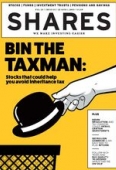Archived article
Please note that tax, investment, pension and ISA rules can change and the information and any views contained in this article may now be inaccurate.
Follow Nick Train and buy quality ‘plodders’ while they’re on sale

For investors in quality growth companies, the first quarter of 2021 has been one of mixed fortunes. Some stocks have performed well, but many have drifted as investors have chased the rally in cheaper, more cyclically exposed stocks which fall under the value umbrella.
Whether the rally in value stocks is set to continue, and for how long, we honestly can’t say. What is needed is patience and the resolve not to give in to the daily gyrations of the market.
As Benjamin Graham, author of Security Analysis and The Intelligent Investor, observed, ‘the investor’s chief problem – and even his worst enemy – is likely to be himself’.
Selling after a period of underperformance could just serve to lock in losses when, assuming the investment case hasn’t deteriorated, the smart thing to do could be to buy more.
While the market may be efficient at discounting trends in the long term, in the short term it can be narrowly focused and even myopic, only able to concentrate on one thing at a time.
SHORT-TERMISM
Investors are currently transfixed by the prospect of a recovery in the global economy and in corporate earnings, which has led to a rising tide lifting cyclical stocks even though many are in industries facing long-term secular decline.
In contrast, quality growth stocks which were prized for the predictability of their earnings during the pandemic have been kicked to the curb and have lagged the indices.
‘Simply stated, having held up during the worst of 2020, our returns have lagged as economic and investor confidence soared,’ says fund manager Nick Train about his investment trust Finsbury Growth & Income (FGT).
A useful way to illustrate the situation is to look at the performance of the Unilever’s (ULVR) share price, says Train. ‘During 2020 Unilever’s business held up reasonably well – selling staple food and personal products all around the world. As a result, Unilever’s share price was something of a safe haven in the context of the UK stock market, actually delivering a modest capital gain in 2020.
‘During the first quarter of 2021, though, Unilever’s share price has fallen 7%, while the UK stock market is up over 5%. Suddenly its “defensive” qualities seem unattractive, when there are “recovery” stories to chase.’
A COMMON PROBLEM
It’s been a similar story for other ‘steady-Eddie’ stocks in the Finsbury Growth & Income portfolio such as Diageo (DGE), Heineken and Modelez. Others in the trust have fared worse still. London Stock Exchange (LSE), which was the biggest position at the start of 2021, hit a high of £99 per share in mid-February but recently traded as low as £69, or almost 30% below its peak.
Admittedly the cost and the execution risk of integrating recently acquired data group Refinitiv into the existing business isn’t minor, and the shares had had a good run, but given its unique mix of data and market exposure Train expects London Stock Exchange to ‘occupy a vital role in the global financial sector’ and for its share price and rating to more than recover the lost ground.
Train isn’t alone in bemoaning the market’s short-sightedness. The Troy Income and Growth Trust (TIGT) has also suffered negative returns on quality stocks such as Experian (EXPN), RELX (REL) and Unilever during first quarter 2021.
‘The strong share price moves in many of the stocks and sectors most damaged by pandemic lockdowns were mirrored by the sharp de-ratings of more dependable franchises such as consumer staples, which had weathered the crisis relatively well,’ say the managers.
DEJA VU
It may be cold comfort for investors, but this isn’t the first time that quality growth stocks have been through a period of tough relative performance. You only need to think back to Donald Trump’s surprise victory in 2016 and the sharp rally in economically sensitive stocks, which also resulted in a de-rating for consistent earners.
The Troy team’s response is to look through these periods of relative weakness and treat them as ‘an opportunity for the trust to add new holdings in those companies that are temporarily depressed and increase holdings in the types of company which we favour’.
By buying on weakness the managers can ‘continue to improve the quality of the overall portfolio along with its resilience to the business cycle’, they claim.
As well as consumer stocks such as Diageo and Unilever, the trust has top 10 holdings in pharmaceutical giants AstraZeneca (AZN) and GlaxoSmithKline (GSK), which ironically in helping provide a Covid vaccine to shorten the pandemic have seen their shares de-rated for their efforts.
Investors cast these pharma stocks aside after realising the vaccines would help to reopen the economy, thus there were suddenly a big group of companies (aka value stocks) that stood a better chance of earnings growth, thus they flocked to that space.
However, healthcare is clearly a secular growth business due to the combination of ageing populations in developed markets and rising incomes in developing markets, which together are driving increased demand for products.
While Nick Train’s fund has regained its pre-pandemic highs in share price terms, the Troy fund is still some way below its previous peak.
For investors who appreciate quality companies, with above-average visibility of earnings and returns on capital together with lower-than-average volatility and an attractive dividend yield, the current price for Troy looks like an attractive entry point. We also continue to rate Finsbury Growth & Income as a good investment trust to own.
DISCLAIMER: The author owns shares in Finsbury Growth & Income.
Important information:
These articles are provided by Shares magazine which is published by AJ Bell Media, a part of AJ Bell. Shares is not written by AJ Bell.
Shares is provided for your general information and use and is not a personal recommendation to invest. It is not intended to be relied upon by you in making or not making any investment decisions. The investments referred to in these articles will not be suitable for all investors. If in doubt please seek appropriate independent financial advice.
Investors acting on the information in these articles do so at their own risk and AJ Bell Media and its staff do not accept liability for losses suffered by investors as a result of their investment decisions.
Issue contents
Exchange-Traded Funds
Feature
Great Ideas
- It’s a great time to feast on McDonald’s shares
- Tracsis springs to life on summer shows optimism
- This engineering stock is racing higher after yet more earnings upgrades
- Virgin Wines’ shares are cheap for an online retailer and it is profitable
- The oil and gas stock shooting higher as new discovery confirmed
- Elementis is still a buy despite takeover disappointment
- The little known company that’s gone up by 88% since October

 magazine
magazine








